I started learning mandarin Chinese 2 years ago and I decided to make a side blog to journal my progress and reblog ressources.
Don't wanna be here? Send us removal request.
Text
Félicitations à ton papa!!! Une belle réussite, bravo!!!!
very IMPORTANT NEWS!
my dad just got 97% in his welsh exam and I am very proud of him!!!!
can we please get a multilingual thread sending him congratulations??
328 notes
·
View notes
Text
Okay so a little more refinement on what chinese podcasts are understandable for a beginner to intermediate learner:
Maomi Chinese: if you start at the beginning, seems understandable to beginners. The podcast used a little english the first time there's a new word used that you might not understand from context, so not pure comprehensible input, but nearly everything is in chinese. The episodes seem beginner to intermediate. The slow speaking of this podcast makes it a bit more like learner made materials in textbooks and graded reader audiobooks, which to me makes it a bit harder to follow if you're used to speech at regular speed.
Learn Chinese Through Stories the episodes that start with 1 seem to be easier (a beginner could understand), 2 seem slightly harder, 3 seem hardest, suited to beginner to intermediate learners. I think the 1-2 episodes are a tiny bit easier than Tea Time Chinese, and the episodes marked 3 are also slightly easier than Tea Time Chinese in that telling a story means they repeat words a bit more and reword things in a few ways. One speaker speaks at a normal-ish pace and the other restates some words slower, which can be nice for clearly hearing some new phrases and words. I also like that their episodes are sometimes 15-30 minutes, you can get a lot of listening practice on 1 story topic.
Chinese with Da Peng: feels around Tea Time Chinese level, so intermediate.
TeaTime Chinese: intermediate level, I think the topics are focused enough and episodes long enough that it is doable to follow the main topic of what he's talking about, although details can be difficult depending on which words you already know.
Talk to Me in Chinese: I can almost follow these episodes, just not quite. Making a guess, I would say this podcast is just a bit harder to listen to compared to TeaTime Chinese. It may be understandable to some intermediate learners.
24 notes
·
View notes
Text
Why you should watch 乘风破浪 and 披荆斩棘 to learn Chinese
What are these shows?
Both 披荆斩棘 and 乘风破浪 follow the same basic format: 30+ celebrity contestants, mostly actors and singers ages 30+, form teams and compete in singing and dancing over several rounds. Viewers vote on their favorite performances and contestants, and 1-3 contestants are eliminated each round. The top contestants form a temporary "group" and appear on a follow-up reality show.
youtube
Why you should watch
1. Exposure to different accents
Contestants come from all over the Chinese-speaking world: Dongbei, Sichuan, Taiwan, Hong Kong, and even Malaysia. I can personally say that watching these shows has vastly improved my ability to understand the Hong Kong Mandarin accent.
2. Pop culture knowledge
Because the contestants are celebrities, you'll be introduced to dozens of famous actors, singers, etc. Also, you'll hear the many iconic songs that they cover. I've impressed several native speakers with my with knowledge of pop culture and music.
youtube
3. Branch out to new media
These shows serve as a gateway to Chinese music, movies, and TV. if you really like the contestants who are actors, you can check out their shows and movies. If you enjoy a certain song or like a contestant who's a singer, you can explore more music.
4. Casual and formal registers
You’ll get to hear casual, unscripted speech while watching the behind-the-scenes and rehearsal clips. But you’ll also get to hear more formal speech when they’re announcing rules and also from the MC who hosts the actual live performances.
youtube
5. Incredible talent
Also, you should watch for the awesome performances and general fun. I love seeing the contestants' friendships, and I’m also obsessed with the amazing sets. There are some incredibly talented performers on these shows, and I love getting to see them shine.
Where to watch
All seasons are free to watch on YouTube! Sometimes clips may be muted or missing, probably due to YouTube's restrictions. But the vast, vast majority is available, and when a clip is missing, you can usually do a separate search and find it. I also pay for a Mango TV subscription, which is $1.99 USD/month.
乘风破浪 full episode playlist links:
乘风破浪的姐姐1
乘风破浪的姐姐2
乘风破浪3
乘风2023
乘风2024
披荆斩棘 full episode playlist links:
披荆斩棘的哥哥1
披荆斩棘2
披荆斩棘3
披荆斩棘4
To help you get started, below is a YouTube playlist of my some of my favorite performances (5 per season, except for the most recent season of each). Cause why not! Also, below the cut I'll put more details along with direct links to my favorite performances.
And if you're a fellow fan emotionally preparing for the 披荆斩棘4 finale 🥲, feel free to message me and commiserate!
See similar posts: I watched all the Chinese idol survival shows so you don’t have to (but you should anyway) Tips for finding Chinese-language media you like
Sisters Who Make Waves
Chinese title: 乘风破浪的姐姐 (S1-2) / 乘风破浪 (S3) / 乘风 (S4-5) English title: Sisters Who Make Waves (S1-3) / Ride the Wind (S4-5) *I call it Sisters for short
This series is the original, having started in 2020. The focus was on female empowerment, particularly of women 30+. A lot of the celebrities had slowed down in their careers, and the show served as their reintroduction to audiences. While female empowerment is still a theme today, I do feel it has lessened in prominence.
Season 1
The original, iconic season. You can tell they had a limited budget and not a ton of space, but it doesn't detract at all thanks to the incredible talent and energy of the contestants. And they had no idea what a phenomenon the show was going to be! Many of my most rewatched performances come from the season.
得不到的爱情
大碗宽面
相爱后动物感伤
FLOW
新物种
youtube
Season 2
This season has a special place in my heart as the first one I watched! It's the only one I've seen twice (when it originally aired and rewatched with friends). Compared to season 1, you can definitely tell they had a bigger budget and started to refine the format. Also, some of my all-time favorite contestants are from this season.
现在不跳舞要干嘛
归零
快乐宝贝
给自己的歌
我
youtube
Season 3
This season was the first with the show's "modern" and fully-developed format, which remains to this day. For example, they started to include more complex sets and recruited more diverse contestants, such as dancers, an athlete, etc. Also, my favorite performance of the entire series, 雾里, is from this season.
雾里
梦中人
山海
孤独颂歌
有吗炒面
youtube
Season 4
This season was the first time I felt there wasn’t improvement over the previous season. I think the stage design took a step backward, and I didn't love the international focus. It was hard to identify my favorite performances because I didn't feel strongly about many. That being said, my friends and I still enjoyed this season.
从头
千里万里
下个,路口,见
归途有风
I'm Not Yours
youtube
Season 5
Though this season has already ended, I'm not done yet. I watch with friends, so we move at a slower pace. So far, it seems largely in line with season 4. I'll update this post after we finish.
Call Me By Fire
Chinese title: 披荆斩棘的哥哥 (S1) / 披荆斩棘 (S2-3) English title: Call Me By Fire *I call it Brothers as a nickname
A show about female empowerment gets a male spin off? Out of skepticism, I did not plan to check out this show when it premiered in 2021 (after Sisters S2). But at some point I changed my mind, mostly because I had to run out of other shows. Little did I know I would arguably become a more devoted fan of this show than the original!
Season 1
This season had too many iconic performances to count, and in particular, the Hong Kong contestants really took the world by storm. Due to scandals, they edited out 2 contestants (Huo Zun and Li Yundi), which admittedly does make for an awkward viewing experience at times, but you should totally watch anyway.
凄美地
MMA
飞云之下
达拉崩吧
如果还有明天
youtube
Season 2
Looking back, season 2 did not have as many stand out performances as season 1, but it does boast my favorite performances of the entire series, 新地球. It also features a fantastic group of contestants, probably my favorite overall cohort of the show.
新地球
袖手旁观
私人生活
理想
凤毛麟角
youtube
Season 3
This was the first season to air after I started watching, though I didn't watch it live because I was still on season 2. While it's probably impossible to top the iconic status of season 1, I think season 3 was an improvement over season 2 in terms of memorable performances. We also got the iconic 0713 (2007快乐男声全国13强) contestants.
行走的鱼
爱人错过
Joker
走麦田
有没有一首歌会让你想起我
youtube
Season 4
This season is sadly coming to an end, although I have not started the finale yet. I'll start this weekend and update this post in the future after I've had some time to gather my thoughts.
Now I have to go finish 披荆斩棘4 episode 11 so I can watch the finale. Bye!!!
201 notes
·
View notes
Note
hey! what's the mandarin term for bisexual? does or have any cool etymology? are there any modern/youthful slang terms (such as P/T) for other lgbt people? just curious. thanks!
Bisexual is 双性恋, or just "双". 双 means two so it's basically the exact same meaning as "bisexual".
I guess since you asked, I'll just go through some basic/popular terminology real quick:
General terms:
同性恋 (tóng xìng liàn) = homosexual ; homosexuality
同志 (tóng zhì) = (lit.) comrade; (slang) gay/homosexual
You can add "男" (male) or "女" (female) in front of either of these two phrases to specify gay vs lesbian.
酷儿 (kù'er) = (loanword) queer
A lot of general modern LGBT terminology is borrowed from the west, i.e, "出柜" (chū guì ; to come out of the closet" or 弯 (wān; "bent"); 直 (zhí; straight).
Lesbian
女同性恋 (nǚ tóng xìng liàn)/女同(志) (nǚ tóng zhì)/ 拉拉 (lā lā) / 百合 (bǎi hé; "lily")
P = 婆 (pó; "wife)/femme
T = Tomboy/butch
H = "half", or 不分 ("doesn't separate") = a lesbian who doesn't differentiate these categories or doesn't identify with either P nor T
Gay
男同性恋 (nán tóng xìng liàn)/男同(志) (nán tóng zhì)
EDIT bc I forgot: 基友 (jī you3) meaning “gay partner” or “close samesex friend” (often for servicemen/firemen/police) is also a common term
零 (líng; 0); 受 (shòu ) = bottom
一 (yī ; 1); 攻 (gōng)= top
0.5, 10, 可攻可受 (kě gōng kě shòu), 兼备 (jiān bèi) = versatile
There's a lot of numbers involved. If you see stuff like 101 or 001 etc these are just referring to the "roles" in a threesome, etc. Numbers are sometimes also used for lesbians, where T = 1, P = 0, and H = 0.5, but I feel like this is less common. The thinking is a little binary in this regard but adherence to this ~structure~ is really case by case, just as it is in the west with tops vs bottoms in LGBT culture.
Within P/T/0/1/etc slang, there are also adjectives that may be added in front of these classifiers. Ex: 肌肉0 (muscular bottom); 公0 (manly bottom), 大母/母0或大母1 (effeminate bottom or effeminate top); 铁T (iron butch; basically super/manly butch)... It's all really arbitrary stuff, sort of like "twink" and "bear" and all that.
Bisexual: 双性恋, 双 (shuāng).
Pansexual: 泛性恋 (fàn xìng liàn) (泛 is a transliteration of "pan-" and has the same meaning of 'general' or 'extensive').
Nonbinary: 非二元 (fēi èr yuán) ("non" "binary" direct translation)
Genderqueer: 性别酷儿 (xìng bié kù'er) ("gender" "queer" direct translation)
[Anecdotally I would speculate that "pansexual", "nonbinary" and "genderqueer" are not popular self-designations as I have never seen them being used online outside of LGBT resource literature taken from the west]
Transgender: 跨性别 (kuà xìng bié) (跨 means "to step across" or "to straddle")
Asexual: 无性恋 (wú xìng liàn) (无 means "not to have" or "no"/"lacking")
Misc
第四爱 (dì sì ài; "the fourth love") sometimes gets brought up in discussion of LGBT terms (although by western standards, it's really completely unrelated). It sort of has a broad meaning but usually it just refers to pegging with a female top and male bottom. I think this might be more of a term from fiction because it's often brought up with other fictional concepts like Alpha and Omega.
2K notes
·
View notes
Text
September Polyglot Challenge

With summer holidays coming to an end and fall business with school and work about to begin, many langblrs find their freetime to learn languages fading into obscurity. Which is why this September, the langblr community is about to get passive with it.
Well, passive-ish.
The Challenge is quite simple:
To learn as many songs in your target language(s) as you can throughout the month. You can make playlists based on your current mood, focus on a single artist you like in your target language or even go through one Disney film after the next.
The main goal:
To kick back, relax and let yourself get into the rhythm of your target language(s) while simultaneously learning new words and phrases and having fun!
Rules:
There is no song limit. You do not need to translate the songs or perform them (unless you want to) or do anything other than learn the songs.
Ideas:
It’s not a contest as to who learns the most songs, so feel free to go at your own pace. My recommendation: Practise memorising at least new 5 songs per week.
Write out the lyrics by hand to refer to as you learn and to help you remember the songs
Write each line onto a seperate notecard and practice putting them in order - either by ear or from memory!
Practise learning without the lyrics
Share the songs you’re learning to Tumblr - the more playlists the merrier!
If you like singing, perform a song for langblr!
Learn a song or two in a language you might want to learn in the future but haven’t started yet
Now it’s time to plug in those headphones, crank up those speakers and get started!
Best of luck,
-@polysprachig
490 notes
·
View notes
Text
my friend and i were going to study a language together and wound up having to cancel our plans due to scheduling pressures, but! through research we came across a really cool resource for reading in a TON of languages: bloom library!
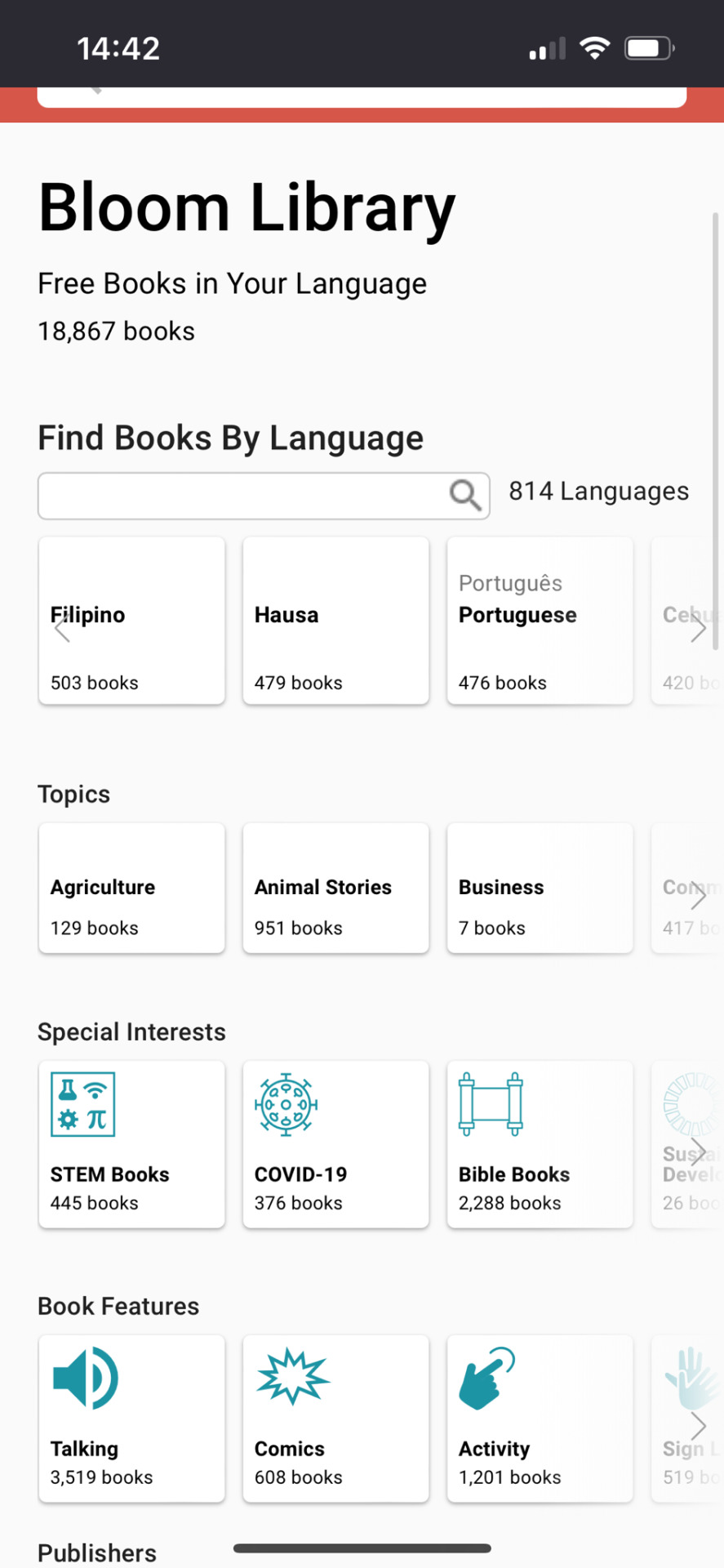
as you can see, it has a lot of books for languages that are usually a bit harder to find materials for—we were going to use it for kyrgyz, for example, which has over 1000 books, which was really hard to find textbook materials for otherwise. as you can see it also has books with audio options, which would be really useful for pronunciation checking. as far as i can tell, everything on the site is free as well.
7K notes
·
View notes
Text
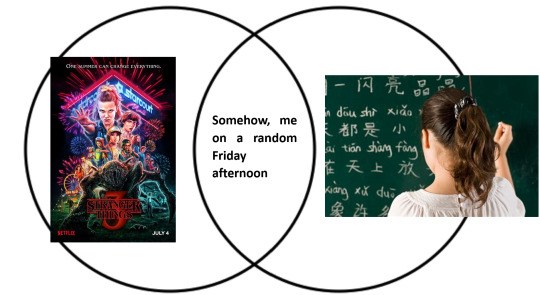
STRANGER THINGS IN CHINESE -VOCAB LIST
so... i was bored and wanted to find some vocab list about stranger things in chinese but i couldn't find any... so I finally decided to go look for it myself on diverse chinese speaking websites who were talking about the show. I also used pleco for some more generic words usefull to speak about the show.
I hope some other people will also fit on my venn diagram of hyperfixation and find this list useful ^^
怪奇物語(guài qí wù yǔ)stranger things
颠倒世界(diān dǎo shì jiè)the upside down
夺心魔 (duó xīn mó)the mind flayer
魔狗 (mó gǒu) demodog
魔王 (mó wáng) demogorgon
魔蝙蝠 (mó biān fú) demobat
藤蔓 (téng wàn) the vines
怪兽 (guài shòu) the monster
维克那 (wéi kè nà) vecna
集体意识 (jí tǐ yì shí) the hive mind
火俱乐部 ( huǒ jù lè bù) the hellfire club
龙与地下城 (lóng yǔ dì xià chéng) dungeons and dragons
棒球棒 (bàng qiú bàng) baseball bat
圣诞灯 (shèng dàn dēng) christmas lights
纹身 (wén shēn) tattoo
失踪 (shī zōng) disappearance
杀 (shā) to kill
心灵感应 (xīn líng gǎn yīng) telekinesis
读心术 (dú xīn shù) telepathy
打电话 (dǎ diàn huà) to make a phone call
摩尔斯电码 (mó ěr sī diàn mǎ) morse code
对讲机 (duì jiǎng jī) walkie-talkie
俄国间谍 (é guó jiān dié) russian spy
实验品 (shí yàn pǐn) human experiment
星庭商场 (xīng tíng shāng cháng) starcourt mall
霍金斯实验室 ( huò jīn sī shí yàn shì) hawkins lab
门 (mén) the gate
#chinese langblr#chinese learning#stranger things#vocab list#chinese vocabulary#studyblr#mind flayer#demodog#demobats#demogorgon#vecna stranger things#the hellfire club#hawkins lab#joyce byers#will byers#eddie munson#steve harrington#eleven hopper#eleven stranger things#mike wheeler#dustin henderson#lucas sinclair#jim hopper#mandarin#language learning#中文#普通话#汉字#robin stranger things
33 notes
·
View notes
Text
My new favourite idiom is 画蛇添足 basically meaning to ruin something by overdoing it
Quite literally ‘draw snake add feet’
Pinyin: Huàshé tiānzú
Traditional: 畫蛇添足
15K notes
·
View notes
Text
Yes! Chinese Graded Readers
Recently, I found a really useful Chinese reading resource for learners of all levels. As the name states, it contains a bunch of graded readers split up based on grade level and HSK level. I’ve selected Elementary School Grade 1 (HSK-1), and here’s what it looks like:

I’ve selected the story 少了一头驴. As you can see, the vocabulary and grammar should be tailored to the grade level, so it’s really useful, especially if you’re studying for the HSK. All the stories include audio, and some of the lower grade levels even have nice background music and sound effects. Some of the higher levels only have Google Translate audio though (even though Google Translate for Mandarin still pretty decent). Here’s the layout of the stories:
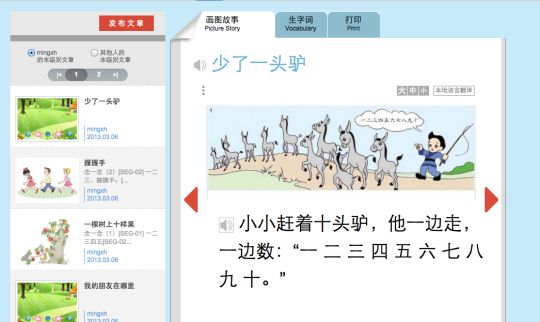
There are 3 tabs: Picture Story, Vocabulary and Print. “Picture Story” is just the story itself, and “Vocabulary” is exactly what it sounds like, although not every story has a vocabulary list ready to go. Here’s a snippet of a vocabulary list from another story:

Going back to the story itself: if you hover over the words, you’ll highlight a vocabulary word/phrase and two things will pop up:

If you click on the audio button, the highlighted words will be pronounced, and if you click on the screen looking button, the following will pop up:

This is a really thorough one-on-one analysis of each character. It gives you some common usages of the character (there are several panels of common words; just click on the numbers in the top left), the Pinyin, and the stroke order.
Pressing the “P” will show the breakdown of the Pinyin and how it’s pronounced:

Pressing the play button will play the stroke order gif, and the rewind button is to restart the gif:
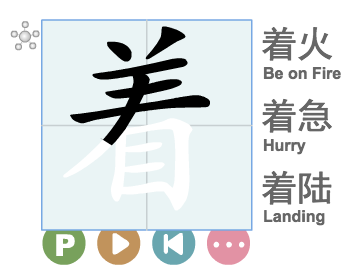
Definitely check out this site for reading practice, I can’t believe I just found out about it. Keep this bookmarked if you’re planning on doing the HSK anytime soon!
Yes! Chinese Website: (link)
2K notes
·
View notes
Text
Ultimate Anime Tournament: Round 4, Matchup 5

375 notes
·
View notes
Text
绛州鼓乐 (jiang4zhou1gu3yue4; Jiangzhou drum music) is a traditional music of Xinjiang county, Shanxi province (Jiangzhou is an old name of the county). It has a history extending before the Qin Dynasty, and was originally performed locally for sacrifices, celebrations, marriages, temple gatherings, and folk entertainment. The music involves many types of drums and various techniques.
The woman in the video is performing the piece 滚核桃 (gun3he2tao2; Rolling Walnuts). It tells a story of autumn harvest, of when farmers dry walnuts on rooftops and the wind blows the walnuts, causing them to fall and make noise from tumbling alng the roof and hitting the ground. You can find an example of what the piece sounds like with a whole ensemble here.
618 notes
·
View notes
Text
Ha I wonder how many strokes the most complex Chinese character has like maybe eightee-

174K notes
·
View notes
Text
Masterlist Langblr challenges
Following from my previous posts, if you do feel like working on your languages, but don't know where to start; here are some langblr challenge you might like!
Language Blog Challenge: 20 weeks of challenges | by @lily-learns-finnish
Langblr Reactivation challenge | by @prepolyglot
14 Day langblr challenge | by @lass-uns-studieren
Langblr News challenge | by @tealingual
90-day vocab challenge | by @jibunstudies
100 Happy Days Langblr Challenge | by @nordic-language-love
Mini speaking challenge | by @nordic-language-love
16 words challenge | by @neblina-a-blin
30 day langblr challenge | @moltre-s
Brick-by-brick language learning challenge | by @linguistness
Langblr word of the day challenge | by @nordic-language-love
Target Language Reading challenge | by @onigiriforears
P.S. Please let me know if you know some more fun langblr challenges!
568 notes
·
View notes
Text
A Resource for Reading Practice: The Chinese Reading World
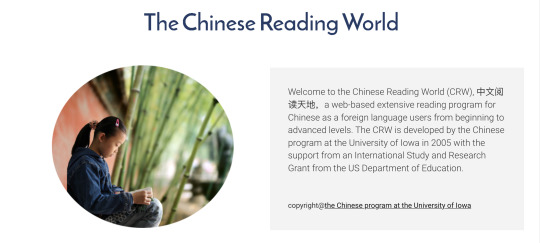
I wanted to share a resource for reading practice that I stumbled across recently. It’s called the Chinese Reading World, and it was a project led by the University of Iowa.
The site was put together from 2005 to 2008, so it’s not super up to date. However, there is a ton of content! Everything is sorted into 3 levels: beginning, intermediate, and advanced.
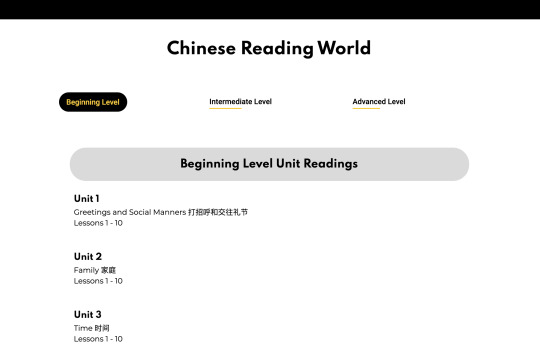
Each level has 30 units, and each unit has 10 lessons. The lessons begin with a vocab pre-test, then there is a reading with some comprehension questions. Lastly, there is a vocab post-test, which is the same as the initial test (at least for the lessons I’ve done so far). There’s audio for each lesson text, but unfortunately it can’t be streamed—you have to download it. There is also an achievement test at the end of each unit.
My experience has actually been that I already know all the words on the vocabulary tests, but the reading passages contain other words that I’m not familiar with.

So far, the readings I’ve encountered are not very long. This is nice since reading longer pieces can be frustrating at times. With shorter readings, you can just read 1 or 2 on some days and read more when you have more time/patience. I believe the readings are taken from Chinese newspapers.
Also, every unit has a theme. With 90 units total, there are bound to be themes that interest you. Example unit topics:
Directions and Asking Direction 方向和问路
Sports and Outdoor Activities 体育和户外运动
Chinese Music and Musicians 中国音乐和音乐家
Chinese Minorities and Local Customs 地方习俗和民族风情
Chinese Sports and Olympic Games 体育和奥林匹克
Contemporary Chinese Literature and Writers 中国当代文学和作家
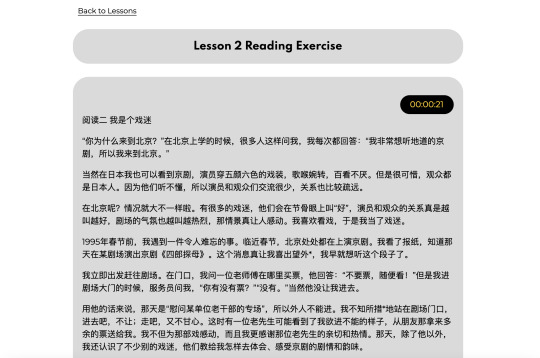
The 3 levels also each come with 5 proficiency tests. They seem to be based on vocabulary knowledge, so expanding your vocab is clearly a huge focus of this site. The only thing I’m unclear is about is I’m not sure exactly when the proficiency tests are meant to be taken. After completing all units? Or are they spaced out so you are supposed to take test 1 after the first few units, test 2 after the next few, etc.?

I’ve started working my way through the advanced section this week. With 300 advanced lessons alone, it really feels like I have an infinite number of articles to go through!
2K notes
·
View notes
Text
Helpful Learning Plan Video
youtube
I love this video since no matter what level you are at, she has what your goals should be and includes specific resources! It was posted just a few days ago so she has up to date suggestions like watching 《中国奇谭》.
I would ignore how long she says each level could take since it really depends on several factors (how much time you can dedicate and how quickly you pick up concepts). Also while the HSK system is a decent measure of skill, I think sometimes your abilities can be at different levels, so it’s good to know what higher level things you should reach for if something like reading or listening is more advanced than your “real” HSK level. Even if you’re at HSK 1, it’s good to see what future benchmarks and resources you should check out.
178 notes
·
View notes

